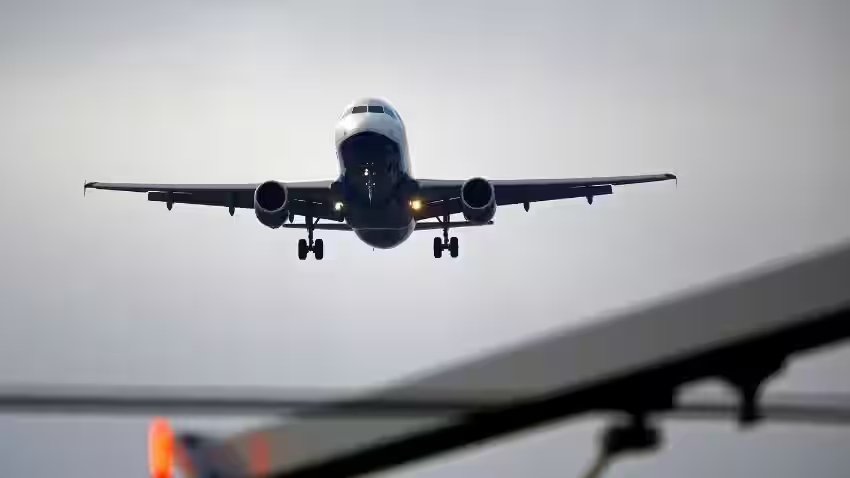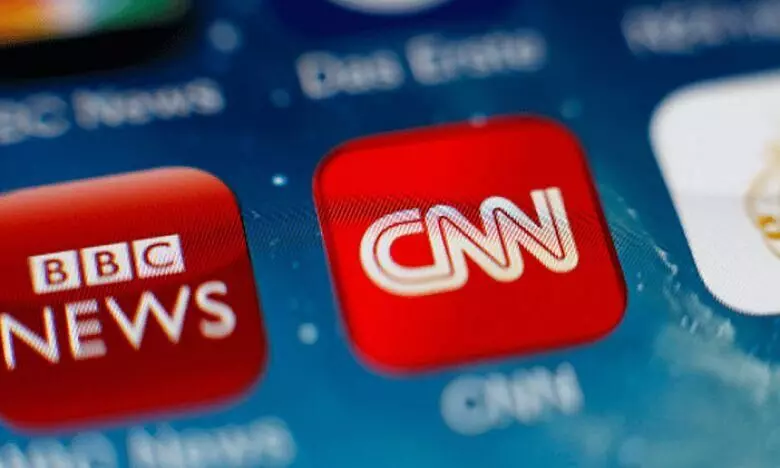
CNN and BBC shape coverage to align with Israeli narrative of the war
text_fieldsTen journalists from CNN and the BBC have raised concerns about the coverage of the war in Gaza, accusing both networks of biased reporting in favour of Israel. The journalists, who have been covering the conflict since the start of Israel's military operations on October 7, allege that their networks exhibited double standards and deviated from core journalistic principles. These allegations emerged during their participation in Al Jazeera’s The Listening Post, which aired a documentary titled Failing Gaza: Behind the Lens of Western Media.
Journalists from both networks claimed that their organisations allowed pro-Israel narratives to dominate their coverage, while critical voices were marginalised. Senior newsroom staff were accused of downplaying Israeli actions, failing to hold Israeli officials accountable, and in some instances, broadcasting misleading information.
At CNN, for example, a report on Gaza’s al-Rantisi Children’s Hospital aired Israeli claims of Hamas using the hospital to hide captives. However, the claim had already been debunked on social media before the segment was broadcast. Internal CNN communications reportedly show that a Palestinian producer had flagged the issue, but her warnings were ignored.
Further criticism was directed at CNN’s editorial policy, with claims that staff members were required to avoid using the term "air strikes" when referring to Israeli bombings unless verified by Israeli sources. In contrast, they argued that similar scrutiny would not be applied to other conflict zones, citing examples such as Russian bombings in Ukraine.
At the BBC, journalists expressed frustration over the vetting process for interviewees, which they claimed disproportionately targeted Palestinian guests. While some Israeli guests were also reviewed, the process was said to be less rigorous. One incident involved an Israeli politician making unverified claims about atrocities committed by Hamas, which were broadcast without being challenged. According to the journalists, this lack of scrutiny reflected a broader trend at the BBC, where Israeli viewpoints were given more prominence and less critical questioning compared to Palestinian voices.
These issues are part of a broader debate surrounding media coverage of the conflict in Gaza, with accusations of pro-Israel bias being levelled against major Western outlets. Over the past year, some journalists at prominent institutions like The New York Times and the BBC have resigned, citing their concerns over perceived editorial biases. These departures highlight a growing discontent among media professionals about the representation of Palestinians and the coverage of Israeli military operations.
In the case of CNN, its editorial team has been accused of influencing how death tolls from Gaza are reported, instructing journalists to contextualise the figures by holding Hamas accountable. Critics argue that this framing diminishes the scale of Palestinian suffering, particularly when health officials in Gaza announced that more than 40,000 people had been killed as a result of Israeli airstrikes.
The allegations against both CNN and the BBC reflect an ongoing struggle within Western media over how to balance reporting on the Israel-Palestine conflict. The broadcasters have denied any bias in their coverage, but the claims from their own journalists raise questions about the internal workings of these newsrooms and their approach to covering the war in Gaza.






















